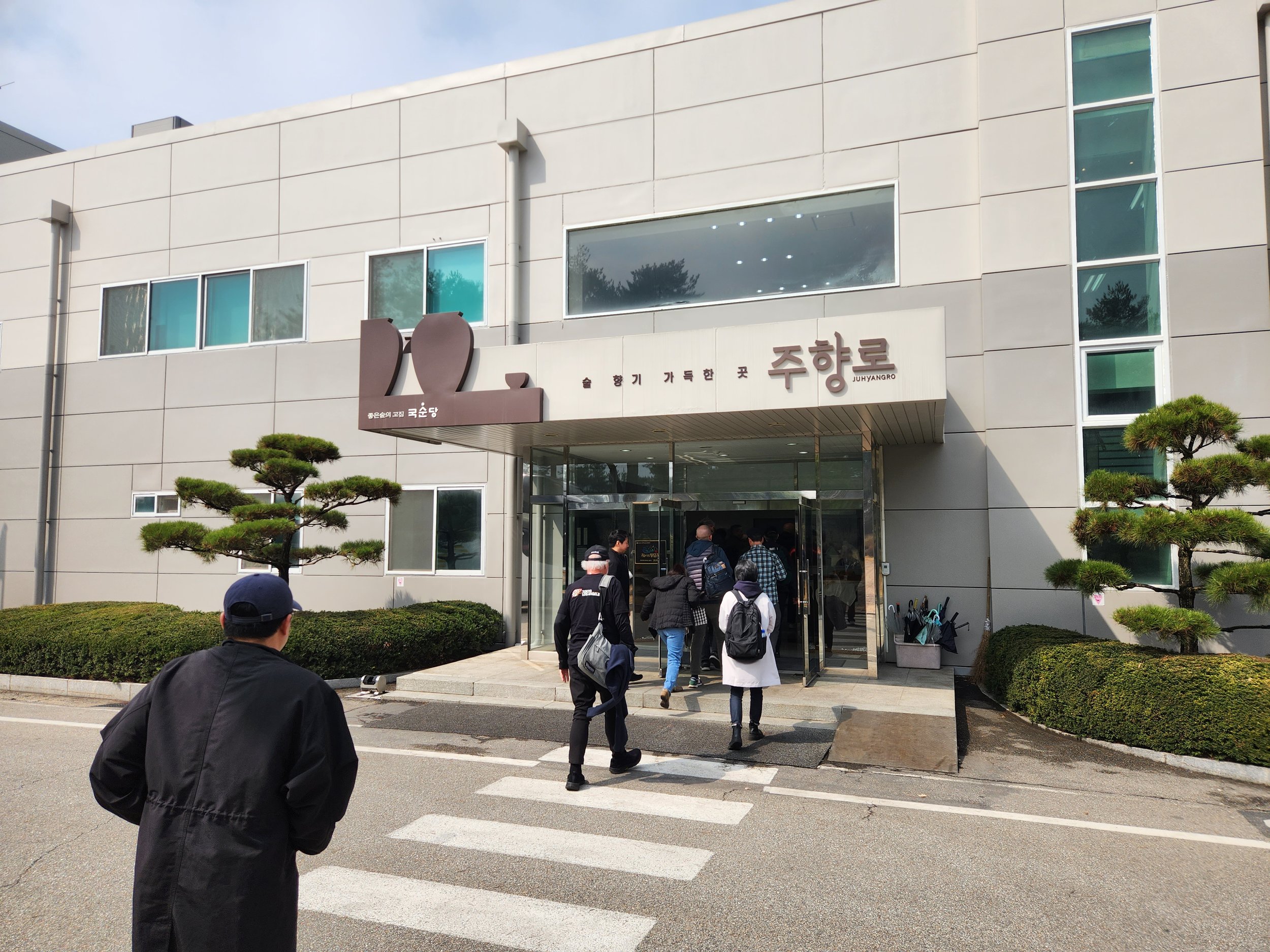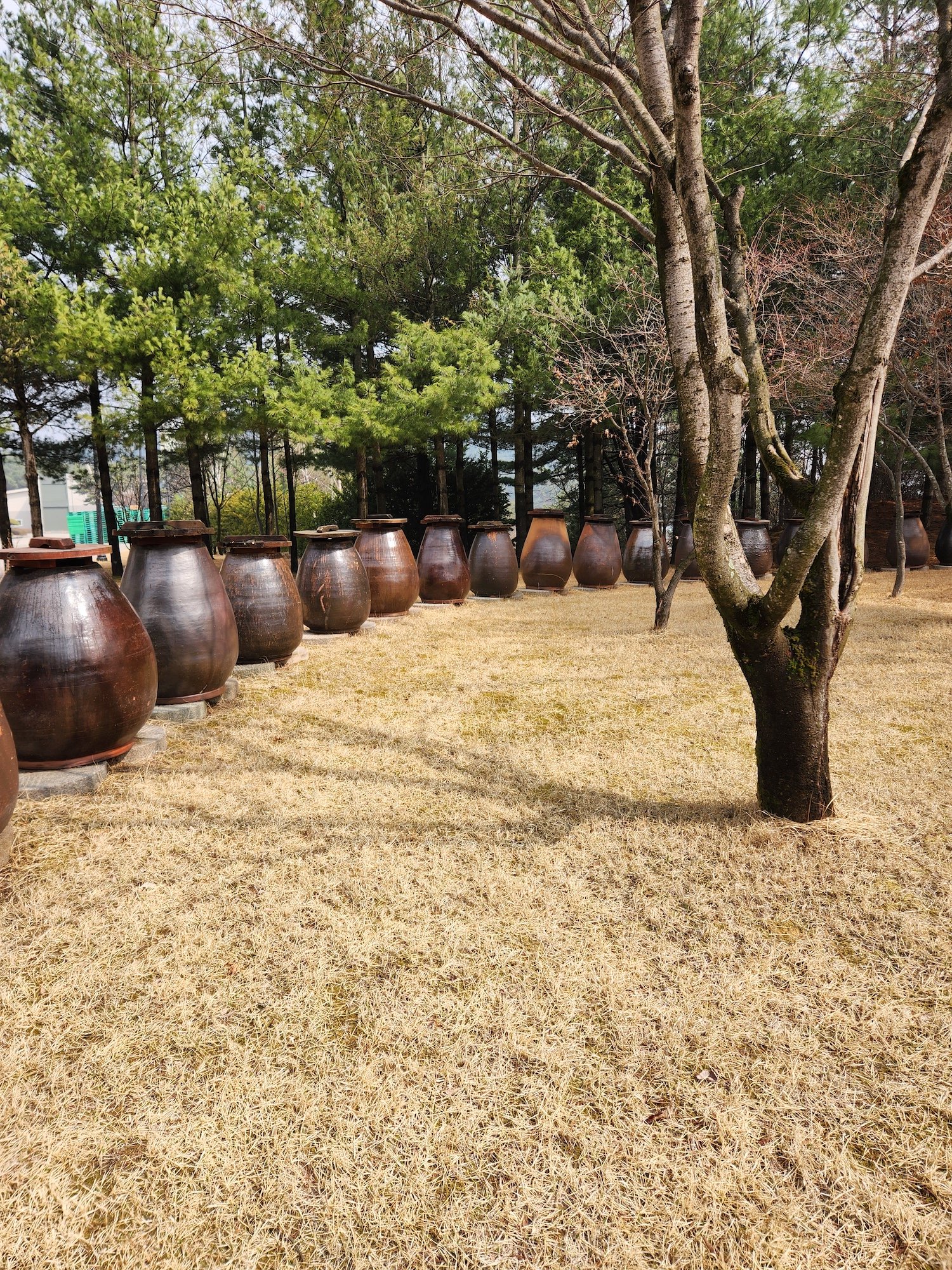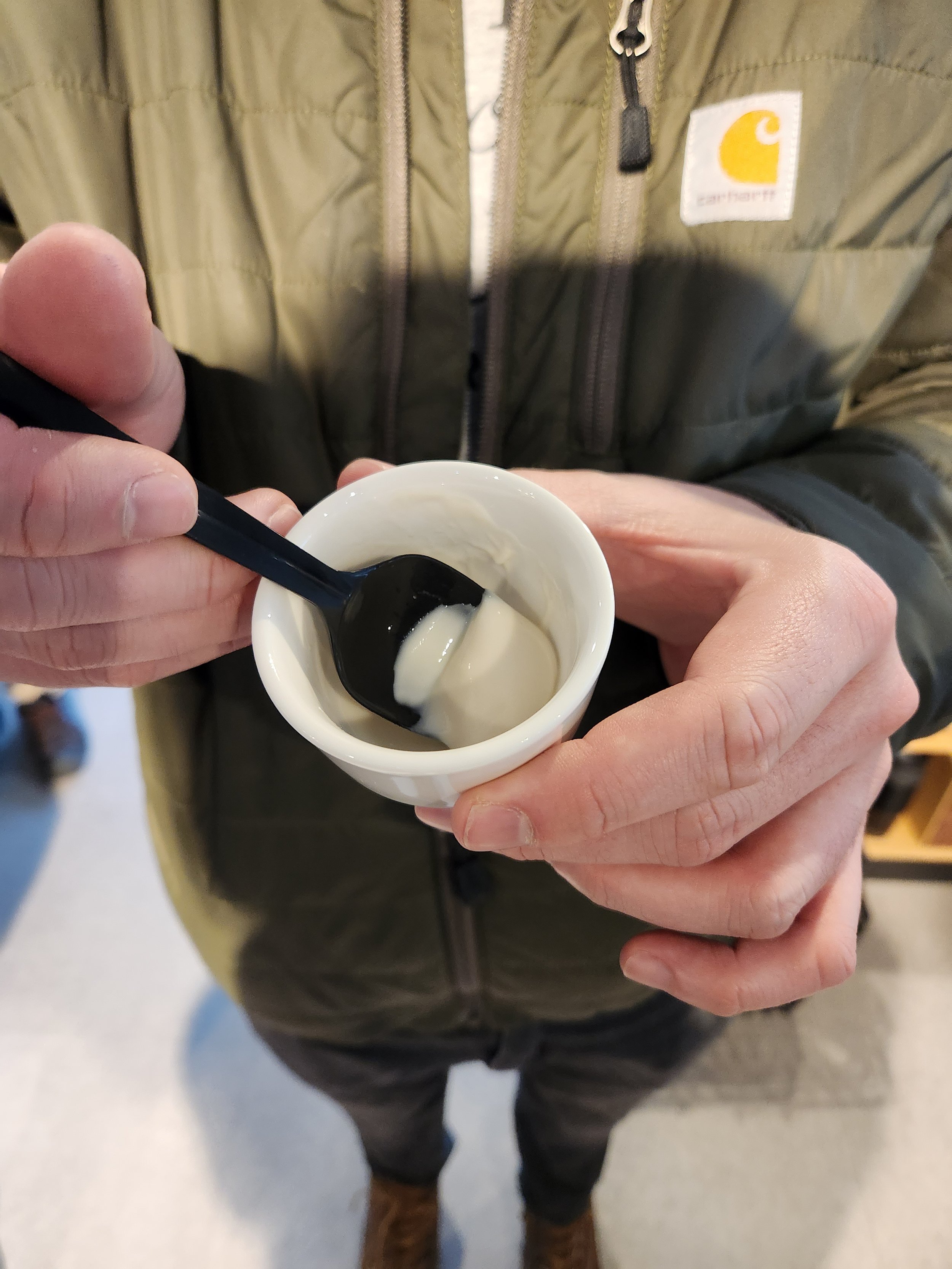Exploring the Sensory Delights of Makgeolli at Kooksoondang's Historic Brewery
Makgeolli factory
Editor’s note: Kooksoondang Co is the largest exporter of makgeolli, and it has been widely reported that their makgeolli exports almost doubled in 2022, reaching a sales value of KRW13.7 billion ($10.2 million), up from KRW7 billion in 2019 with exports to the US exceeding $3 million. This is the most since they began exporting.
On a recent trip to Seoul for the Korean International Beer Expo (KIBEX), I had the fortunate opportunity to visit the factory of one of its revered national fermented beverages, Makgeolli. To those uninitiated to Makgeolli, the closest comparison is likely unfiltered Nigori sake, as both are rice based and share very similar production techniques. Differences in flavor include a sour quality typically absent from the latter, while also presenting with higher levels of ripe fruitiness.
Kooksoondang from Hoengseong Brewery
Clay pots for fermenting makgeolli
Kooksoondang , roughly translated as “House of Good Yeast”, is a Makgeolli brand produced at the Hoengseong Brewery, located in the Gangwon province about an hour east by car from Downtown Seoul. At the entrance, one is met with an immediate juxtaposition of the present and past, as the sleek production facility faces a courtyard featuring a row of barrel-sized fermentation jars that serve as a nod to Makgeolli making in former times. Walking through the front doors reveals an oversize bust of the brewery’s founder, Sang-myeon Bae. Prior to the tour, visitors are presented with some brief videos explaining the history of the brewery - founded in 1952 - providing context of Makgeolli making and the brewery’s crusade of keeping these time-honored traditions alive.
Makgeolli packaged for sale
How Makgeolli is Made
Following these videos, guests are led on a guided tour of the production facility where the Makgeolli making process is explained in further detail. Makgeolli again being rice-based, the Hoengseong brewery sources Seolgang rice, a Japonica variety known to be non-glutinous and producing high quality rice flour. This enables Hoengseong to create very fine and uniform rice powder, which is said to positively impact the flavor of Makgeolli.
Once ready, the flour is then added to a mixture of cool, sanitized spring water (via boiling) and Nuruk, a dough-like fermentation starter made from a variety of grains, and contains both enzymes and yeast that breaks down the sugars and subsequently converts them to alcohol.
The tour wraps with an informal tasting in the retail space, where the portfolio of Makgeolli products is flanked by other spirits produced by the brewery, including a rice-based drink featuring ginseng and herbs called Baekse-ju (also spelled Bekhaju).
Product Line
Makgeolli tasting
Kooksoondang Draft Makgeolli is considered the flagship of the line and comes across with a soft rice sweetness backed by prominent banana flavor. Secondary flavors also include honeydew melon, while the nose gives off a pleasant Japanese gummy candy aroma. Faint carbonation and minimal tangy notes derived from the presence of lactobacillus provide a tickling sensation on the palate.
There is also a Brown Label, which features raw rice and uses what seems to be a proprietary method of pasteurization sans heat. This results in a product that retains more nutty elements of the rice, and expresses itself more like green plantain. Additionally, there is a pronounced sourness that counterbalances a higher level of sweetness when compared to the Draft, yielding an overall more robust presentation.
The 100 Billion, a premium product named due to the purported 100 Billion lactobacillus cells in every bottle, is comparatively restrained with its sweetness, providing more of a soymilk-like aroma while exhibiting a prominent sourness, and inspiring comparisons to Yakult/probiotic milk.
Dessert alcohol Ihwa-ju
Ihwa-ju
I was last treated to a rarer product almost never seen these days, a dessert alcohol called Ihwa-ju. Having the consistency of paste, it must be eaten with a spoon, and is noticeably sharper and earthier in contrast to the Makgeolli variants before eventually opening up, with its signature banana fruitiness. Additionally, one experiences a pronounced alcohol warmth fully attributed to it being 12.5% ABV. From a culinary standpoint, I’d be curious to see the exploration of Ihwa-ju in cooking, as the flavor profile certainly lends itself to be used in a wide variety of dishes and preparation.
Looking to learn more? Read Makgeolli 101.





